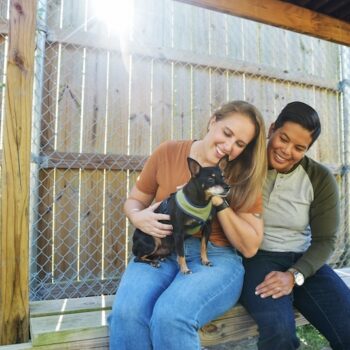An online survey of animal welfare organizations in the United States was done to learn about programs run by shelters and rescue organizations to explore the factors they believe contribute to canine relinquishment and help dog owners keep their pets. There were 111 responses included in the analysis of the survey.
On Thursday, September 12, 2024 at 12PM PT/3PM ET, Seana Dowling-Guyer will be sharing the key takeaways of this survey during the Maddie’s Insights webcast.
The research found that a whopping 95% of participating organizations already offered some type of support to help keep pets with their people! The most common types of programs being implemented were food banks, followed by free or low-cost spay/neuter, surrender counseling and rehoming advice/connections. Free or low-cost veterinary care was the least common service offered.
Organizations reported that moving (77.5%) and financial difficulties (45.9%) were the most common reasons for relinquishment. Organizations reported that lack of access to affordable veterinary and behavioral care and affordable pet-friendly housing were two major reasons for dog relinquishment. There were some regional differences in the most commonly reported reasons for dog relinquishment.
When asked which programs would be most beneficial in their communities in helping keep pets with their people, the most selected answer was behavior training/obedience classes, followed by behavior consultations and assistance with funding veterinary care. Accordingly, the programs most frequently being planned were behavior training/obedience classes and behavior consultations.
These programs were most often limited or discontinued for financial reasons, followed by constraints on personnel. This research suggested that partnering with veterinary and behavior professionals may help these organizations to provide these resources.
The key takeways from the survey are:
- Shelters and rescue organizations interested in pet retention should create programs that proactively support dog owners before relinquishment is their only option.
- When animal welfare organizations develop pet retention programs, they should carefully consider the needs of their individual communities and design their programs around them.
- Organizations interested in keeping pets with their people should engage community stakeholders (e.g., veterinarians, dog trainers) to develop low-cost models of care delivery.
- Organizations implementing pet retention programs should gather and analyze data to track success and make improvements.
Register now for Maddie’s Insights: Aligning Programs with Community Needs to Support Companion Dog Retention on September 12, 2024.

